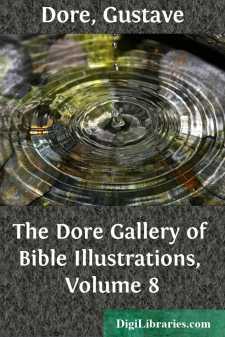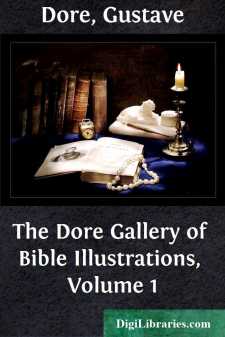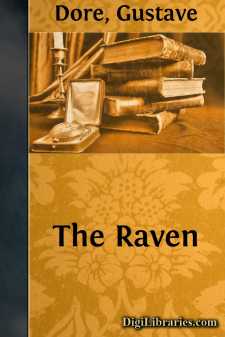Categories
- Antiques & Collectibles 13
- Architecture 36
- Art 48
- Bibles 22
- Biography & Autobiography 813
- Body, Mind & Spirit 142
- Business & Economics 28
- Children's Books 15
- Children's Fiction 12
- Computers 4
- Cooking 94
- Crafts & Hobbies 4
- Drama 346
- Education 46
- Family & Relationships 57
- Fiction 11828
- Games 19
- Gardening 17
- Health & Fitness 34
- History 1377
- House & Home 1
- Humor 147
- Juvenile Fiction 1873
- Juvenile Nonfiction 202
- Language Arts & Disciplines 88
- Law 16
- Literary Collections 686
- Literary Criticism 179
- Mathematics 13
- Medical 41
- Music 40
- Nature 179
- Non-Classifiable 1768
- Performing Arts 7
- Periodicals 1453
- Philosophy 64
- Photography 2
- Poetry 896
- Political Science 203
- Psychology 42
- Reference 154
- Religion 513
- Science 126
- Self-Help 84
- Social Science 81
- Sports & Recreation 34
- Study Aids 3
- Technology & Engineering 59
- Transportation 23
- Travel 463
- True Crime 29
Gargantua and Pantagruel, Illustrated, Book 3
by: Gustave Dore
Description:
Excerpt
Good people, most illustrious drinkers, and you, thrice precious gouty gentlemen, did you ever see Diogenes, and cynic philosopher? If you have seen him, you then had your eyes in your head, or I am very much out of my understanding and logical sense. It is a gallant thing to see the clearness of (wine, gold,) the sun. I'll be judged by the blind born so renowned in the sacred Scriptures, who, having at his choice to ask whatever he would from him who is Almighty, and whose word in an instant is effectually performed, asked nothing else but that he might see. Item, you are not young, which is a competent quality for you to philosophate more than physically in wine, not in vain, and henceforwards to be of the Bacchic Council; to the end that, opining there, you may give your opinion faithfully of the substance, colour, excellent odour, eminency, propriety, faculty, virtue, and effectual dignity of the said blessed and desired liquor.
If you have not seen him, as I am easily induced to believe that you have not, at least you have heard some talk of him. For through the air, and the whole extent of this hemisphere of the heavens, hath his report and fame, even until this present time, remained very memorable and renowned. Then all of you are derived from the Phrygian blood, if I be not deceived. If you have not so many crowns as Midas had, yet have you something, I know not what, of him, which the Persians of old esteemed more of in all their otacusts, and which was more desired by the Emperor Antonine, and gave occasion thereafter to the Basilico at Rohan to be surnamed Goodly Ears. If you have not heard of him, I will presently tell you a story to make your wine relish. Drink then,—so, to the purpose. Hearken now whilst I give you notice, to the end that you may not, like infidels, be by your simplicity abused, that in his time he was a rare philosopher and the cheerfullest of a thousand. If he had some imperfection, so have you, so have we; for there is nothing, but God, that is perfect. Yet so it was, that by Alexander the Great, although he had Aristotle for his instructor and domestic, was he held in such estimation, that he wished, if he had not been Alexander, to have been Diogenes the Sinopian.
When Philip, King of Macedon, enterprised the siege and ruin of Corinth, the Corinthians having received certain intelligence by their spies that he with a numerous army in battle-rank was coming against them, were all of them, not without cause, most terribly afraid; and therefore were not neglective of their duty in doing their best endeavours to put themselves in a fit posture to resist his hostile approach and defend their own city.
Some from the fields brought into the fortified places their movables, bestial, corn, wine, fruit, victuals, and other necessary provision.
Others did fortify and rampire their walls, set up little fortresses, bastions, squared ravelins, digged trenches, cleansed countermines, fenced themselves with gabions, contrived platforms, emptied casemates, barricaded the false brays, erected the cavaliers, repaired the counterscarps, plastered the curtains, lengthened ravelins, stopped parapets, morticed barbacans, assured the portcullises, fastened the herses, sarasinesques, and cataracts, placed their sentries, and doubled their patrol. Everyone did watch and ward, and not one was exempted from carrying the basket. Some polished corslets, varnished backs and breasts, cleaned the headpieces, mail-coats, brigandines, salads, helmets, morions, jacks, gushets, gorgets, hoguines, brassars, and cuissars, corslets, haubergeons, shields, bucklers, targets, greaves, gauntlets, and spurs. Others made ready bows, slings, crossbows, pellets, catapults, migrains or fire-balls, firebrands, balists, scorpions, and other such warlike engines expugnatory and destructive to the Hellepolides. They sharpened and prepared spears, staves, pikes, brown bills, halberds, long hooks, lances, zagayes, quarterstaves, eelspears, partisans, troutstaves, clubs, battle-axes, maces, darts, dartlets, glaives, javelins, javelots, and truncheons....












